The Digital Construction Awards attracted over 170 entries this year, 85 of which have been shortlisted. Here, we detail the finalists for the Digital Team of the Year award.
This category recognises the team driving digital transformation and/or information management best practice within their business.
In an ultra-competitive category, eight entries have made the shortlist.
AtkinsRéalis – Digital Centre of Excellence team formation
The Digital Centre of Excellence team at AtkinsRéalis has made the transition from a collective of digital enthusiasts into a formal business unit. Throughout 2024, it has substantially grown the size of the team, the pipeline of digital projects and the cost, time, quality and environmental benefits realised from doing things differently in the nuclear industry.
The team are recognised as a trusted digital partner for nuclear industry clients, with
alignment of different technologies and specialisms into collaborative offerings. It has 12 leads across six different capabilities, including information management, robotics, digital construction, artificial intelligence, extended reality and virtual site access.
The Digital Centre of Excellence leads have built a multidisciplinary and geographically
diverse team, bringing together traditional consultancy alongside agile product development and move-fast-and-break-things technology solutions.
By leveraging technology and transforming how it delivers, Digital Centre of Excellence team leads have impressed clients across the nuclear lifecycle. Its collective efforts have resulted in repeated high-profile successes, including at Sellafield, Hinkley Point C and other major projects.
AtkinsRéalis – Transportation Information Management Network
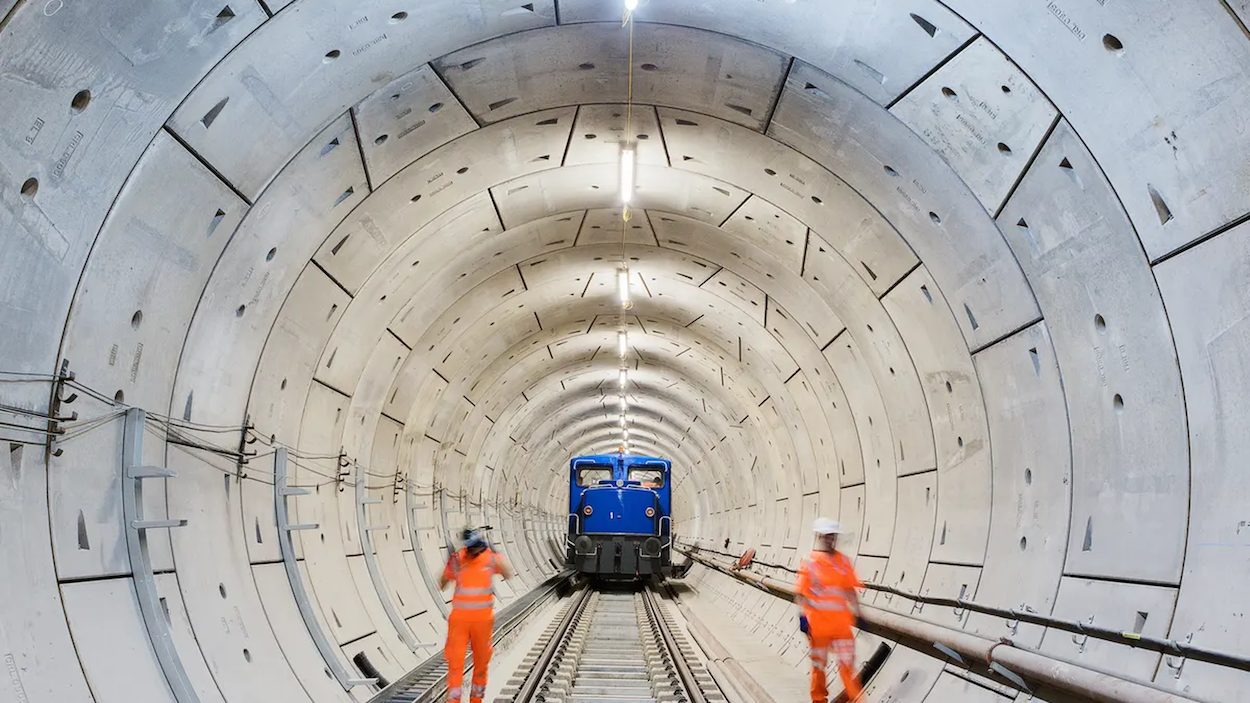
The Transportation Information Management Network has managed to create a sense of community that reaches across international boundaries, practice and line management interfaces and project scales.
The willingness of members of the network to share best practice and, more importantly, to openly share problem statements, has allowed the business to leverage its combined intellect to solve complex challenges and generate efficiencies for the Transportation business and AtkinsRéalis clients.
The team has given its community a clear path for career progression that moves beyond simple academic requirements and sets wider expectations, including behaviours and understanding of issues outside of technical information management.
The development of this career path guidance is empowering AtkinsRéalis’s early career staff to develop into excellent, all-rounded individuals who can make a positive contribution to the business.
This, in turn, has been a catalyst to transition from a cross-practice network to a dedicated information management practice, further enhancing the resource optimisation, collaboration and service offering to its clients.
BAM UK & Ireland – Realising the value of a digital team
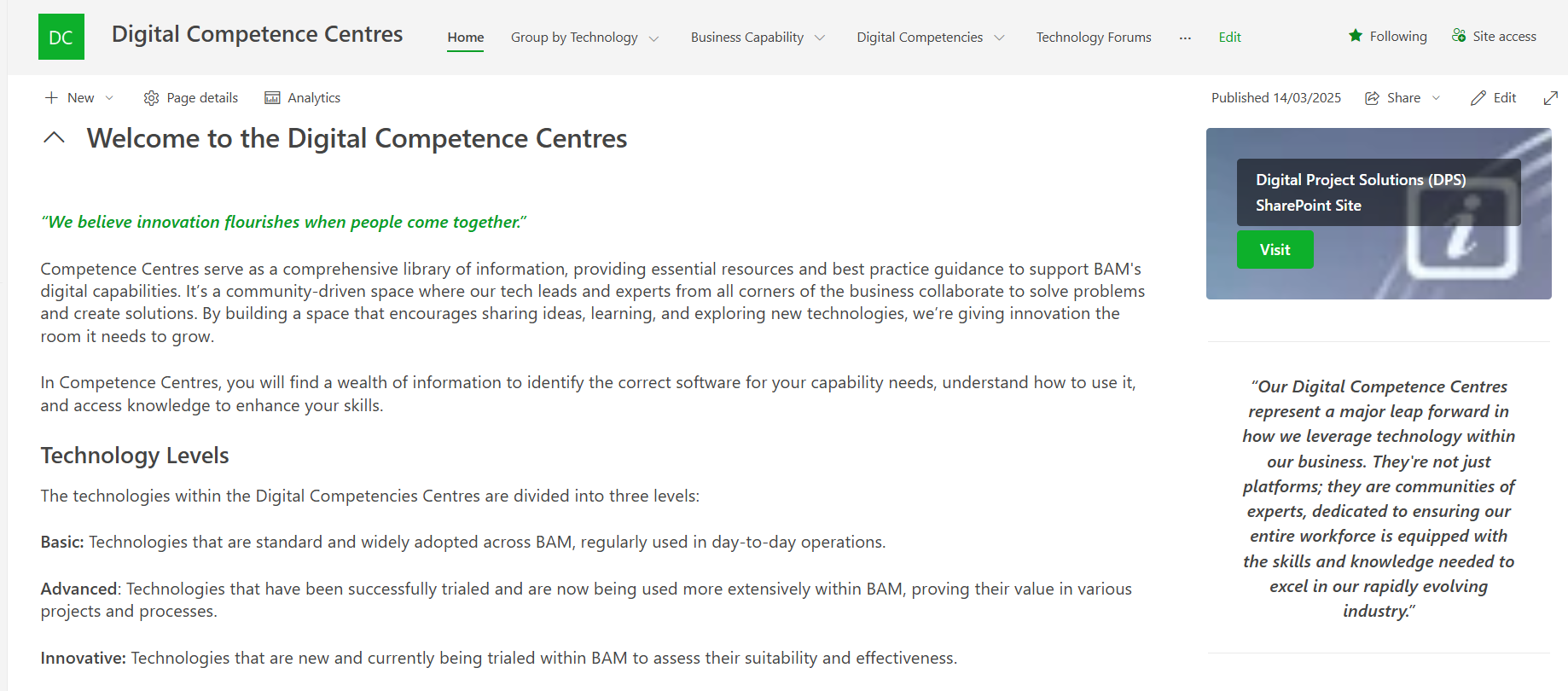
In the face of a huge organisational transformation, BAM UK & Ireland has built a team that is delivering global excellence in mobilising digital applications.
In 2023, Royal BAM Group began consolidating its £5bn global business into just two divisions. This included merging BAM Nuttall, BAM Construction and BAM Ireland into a new single entity under the name BAM UK & Ireland.
Identified as a key requirement for a successful transformation for this division, a new
Digital Project Solutions (DPS) department was established and tasked to deliver both information management and digital excellence into the business.
The team was built around four pillars, namely innovation, production, projects and support. DPS Support has been on a journey to mobilise and deploy new applications and processes, while also becoming a high-performance team.
Guided by a team charter and geographically spread out across the UK and Ireland, the 14-person team communicates openly through hybrid work and actively engages with all the challenges that a business in transformation creates.
In 2024, the DPS Support team mobilised and deployed an internal risk management
application and a new internal information management tool, while also transitioning from Autodesk BIM360 into Autodesk Construction Cloud for more than 75 new projects across the UK and Ireland.
Digital transformation within Prism Offsite Manufacturing
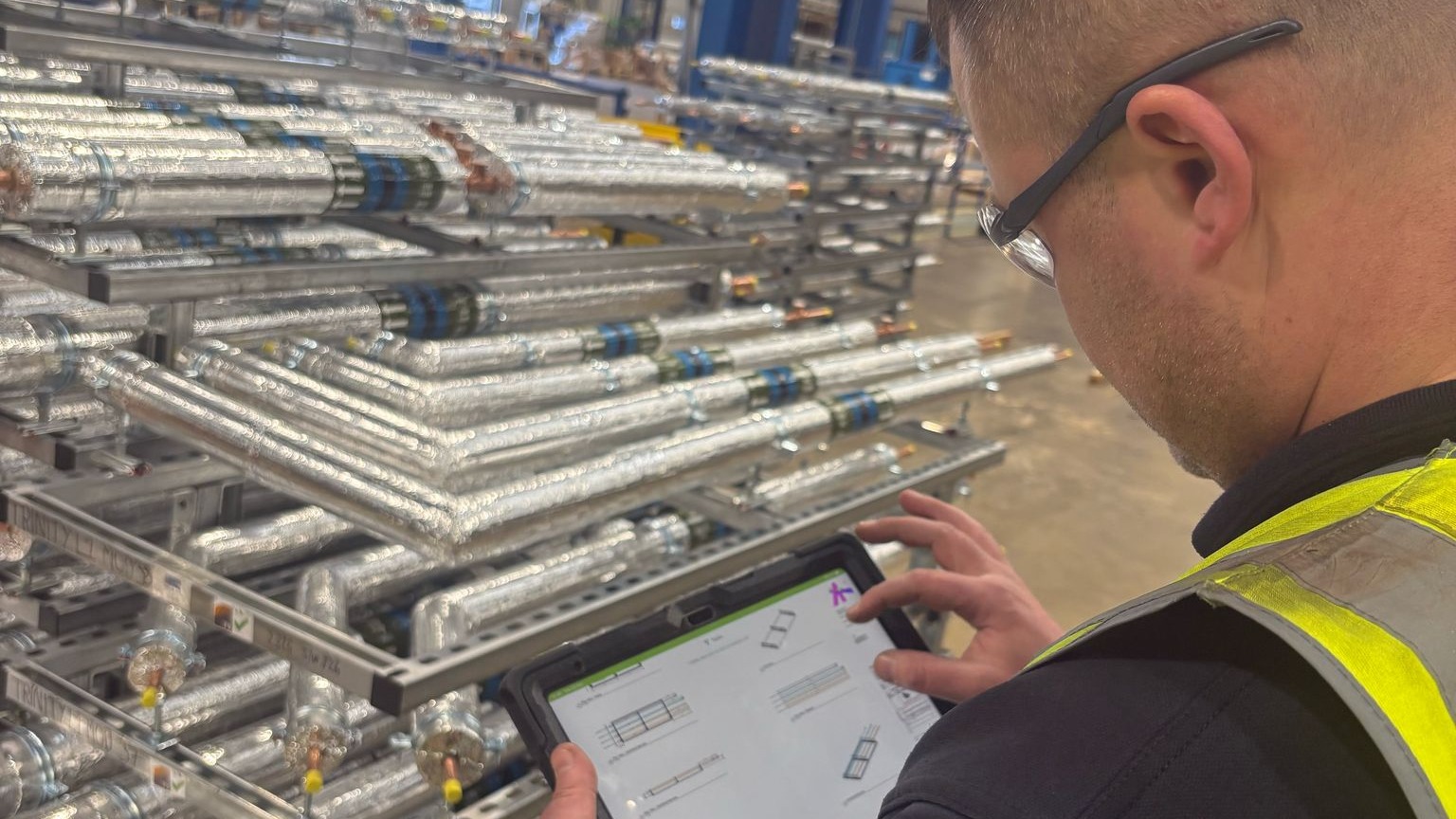
2024 was a huge year for digital transformation at Prism, with the team making strategic influential changes to how it operates across multiple areas of its business, involving all members of the digital team.
The main goal was to optimise the factory performance and efficiency by adopting technological tools and the utilisation of innovations within the business’s processes.
The Prism digital team members have all uniquely developed their skillsets to exceed performance expectations, as well as going beyond their digital strategy objectives for 2024.
Having identified three focus areas for improvement, the digital team developed and implemented innovative solutions, including the digitisation of the factory floor, the enhancement of digital engineering and manufacturing data integration, and advancing information management.
Through these initiatives, Prism has strengthened its digital capabilities, optimised
production, and enhanced collaboration across teams. A major highlight of 2024 was staff and shop-floor training to support digital transformation.
Looking ahead, Prism is focusing on implementing a digital labour tracking system and enterprise resource planning process to further enhance efficiency and resource management.
Laing O’Rourke’s digital team
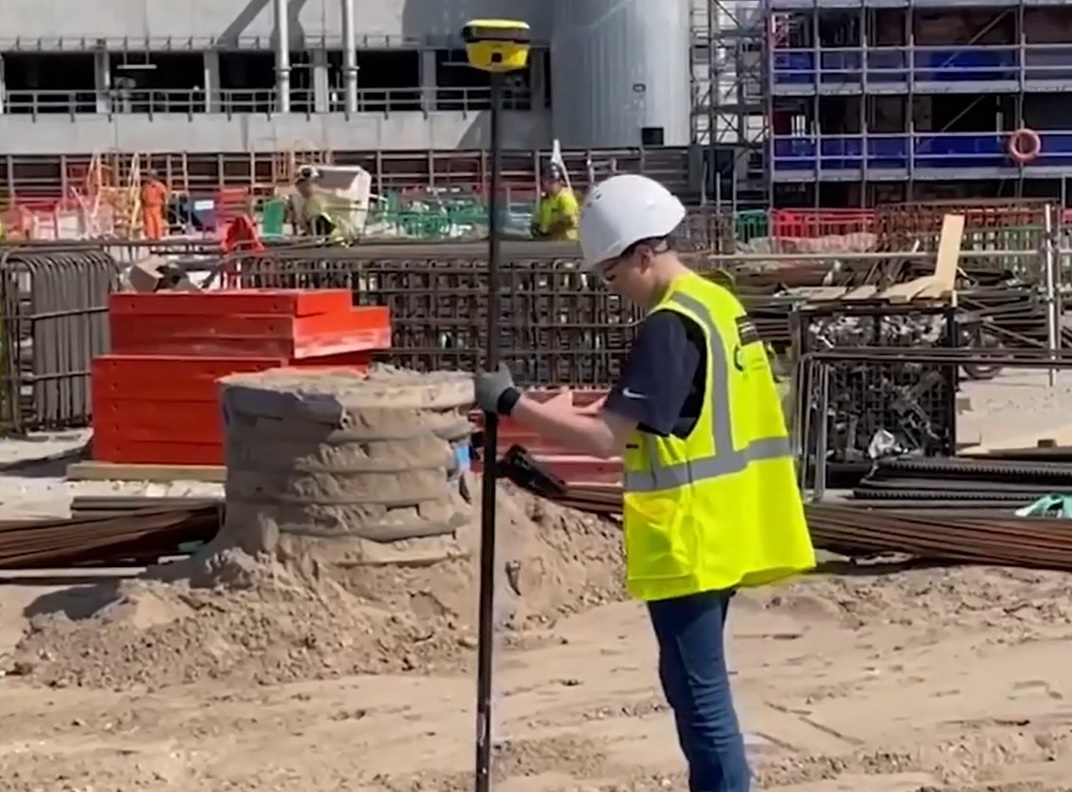
Laing O’Rourke is bringing digital to the forefront of its operations as a key enabler of project delivery certainty, safety, wellbeing and client satisfaction.
It has reorganised its digital function in such a way that it can consistently master the
basics, digitally enable its people, and realise value on projects. With a concerted effort on engaging and empowering its digital (and non-digital) employees, and introducing consistent measures across its project portfolio, the contractor’s digital offering is approaching unified implementation for the benefit of staff and clients.
The business had been using digital engineering methods across its projects for many years. However, there was inconsistency from project to project, with multiple solutions being explored to solve the same problem.
The capture and sharing of best practice varied from project to project and meant that adoption of digital solutions was not as fast as it could have been.
Laing O’Rourke identified that what it needed was to transition from “doing digital”
on projects, to “being digital” in every facet of their delivery. For this, it developed a phased approach to change, adopting a “crawl, walk, run” mantra to progress digital in the business, aligning it to its 2032 strategy. It then set out a clear roadmap for tracking and communicating progress.
Organisation-wide digitalisation is already paying dividends. Most notably, the digital team has seen a spike in demand for digital services internally. There has been a 20% increase in demand for digital resources in supporting project delivery, and the function is growing accordingly, with improved automation and consistency.
McLaren Construction’s digital information management team
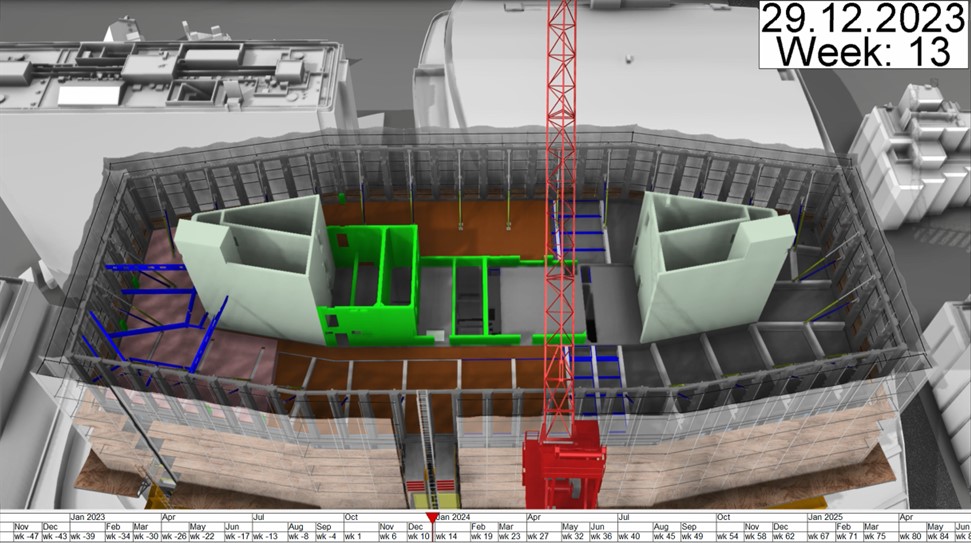
McLaren has created a 22-strong digital information management team in-house to implement a five-year digital strategy set by the board in 2022.
Comprising information management, digital construction and specialist system
implementation managers, the team is responsible for McLaren’s digital information
management standard, ensures compliance with building safety legislation and demonstrates robust digital information management for all aspects of design, procurement, change control, quality control and handover.
The digital information management team has succeeded in delivering user-friendly systems and driving culture change, elevating the status of information management and data across McLaren.
Just three years later, take-up has reached 90% of projects and 84% of employees. More than 1,800 external users, including customers, designers and subcontractors, engage with McLaren’s digital systems and use its data.
Benefits such as greater profitability and a growing proportion of repeat business were delivered in the 2024 end-of-year results.
Translink BIM team on Belfast Grand Central Station
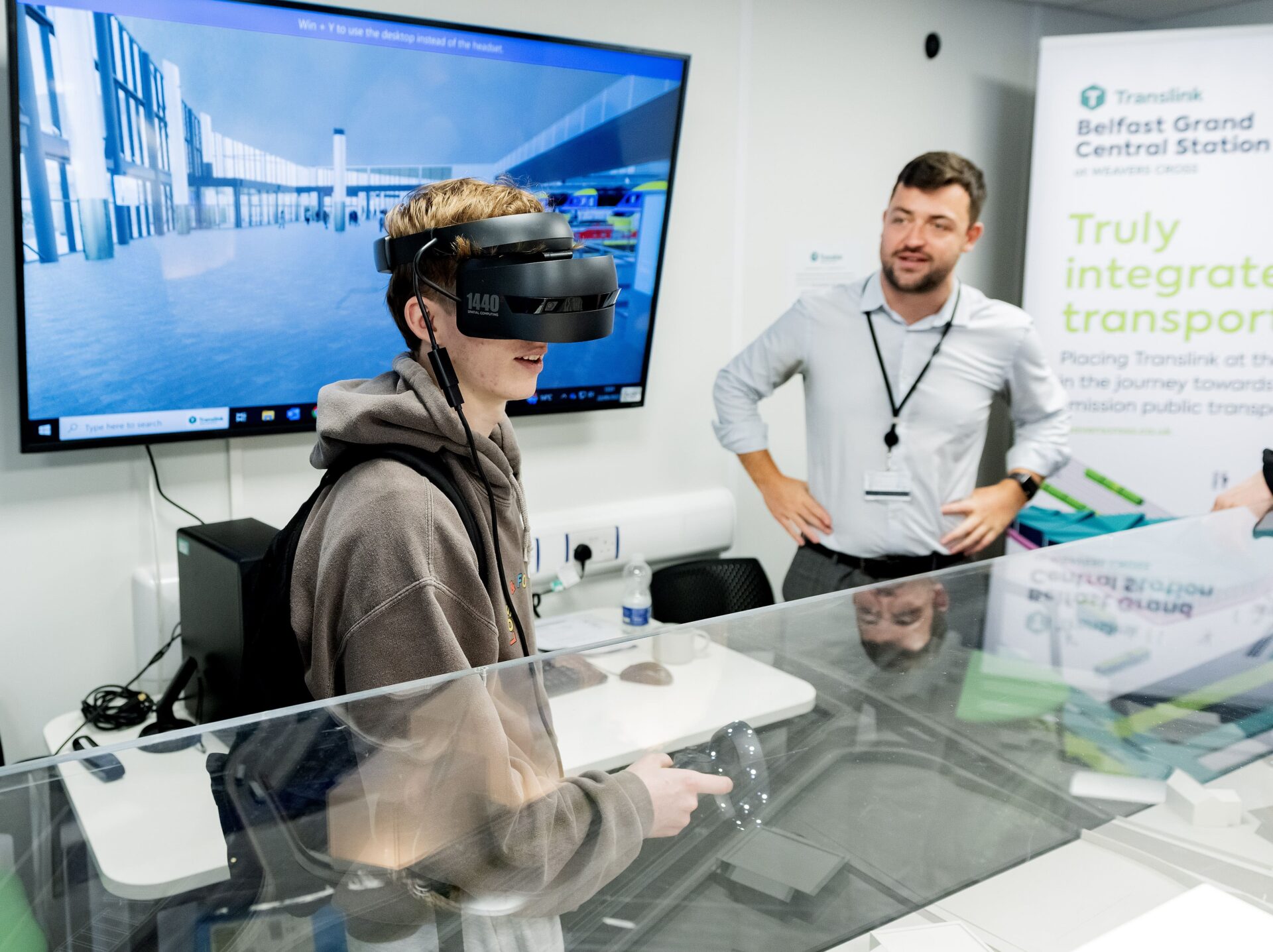
The BIM team at Translink has transformed digital construction, revolutionising how asset management and information exchange operate within the organisation.
At the forefront of digital innovation, they have redefined best practices, streamlining data delivery between project teams and clients with unprecedented efficiency. By strategically developing cutting-edge processes, they’ve ensured seamless integration of information requirements at every stage of project delivery.
Their work has gone beyond compliance: they’ve also set new benchmarks for digital excellence. Through targeted upskilling and with proactive leadership, the team has elevated BIM capabilities across Translink, embedding a digital-first approach within infrastructure projects.
Collaboration has been key in these efforts. They’ve engaged cross-functional teams, NAS and industry experts to introduce gamechanging technologies that drive smarter decision-making, reduce risk and enhance project outcomes.
Their commitment to innovation has not only modernised Translink’s infrastructure management, but also positioned the organisation as a leader in digital construction.
This team isn’t just embracing digital transformation, but is also driving it forward, setting new standards for efficiency, accuracy and sustainability in the built environment.
WSP on Surface Transport Infrastructure Construction – Brent Cross TfL Structures
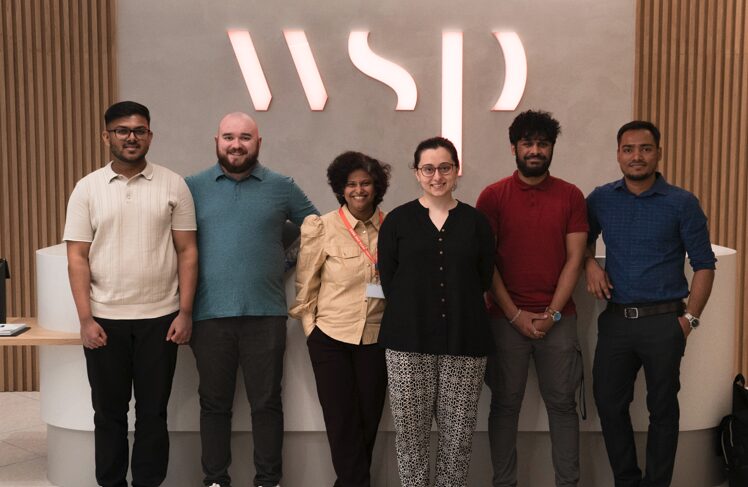
The Brent Cross project, a £3m development for Transport for London, faced
significant challenges in task allocation, communication and tracking across around 15
bridge designs, five underpasses and five retaining walls.
Manual processes led to inefficiencies, prolonged review cycles and difficulties in coordination between engineers, package leads and designers, which involved more than 50 different individuals simultaneously working on the project. The lack of automation caused miscommunication, delays and inconsistencies, complicating collaboration.
This changed thanks to the South East-based bridges BIM team within the civil discipline, which has spearheaded WSP’s transport and infrastructure digital strategy and transformation efforts.
The team consistently showcases its ability by thinking outside the box, introducing innovative ideas that drive the organisation forward. The team’s dedication to excellence is not just a philosophy, but a successful implementation of those ideas with practical examples on multiple projects that have set a new bar for everyone.
By exploring new possibilities, the team has continuously found ways to enhance workflows, improve quality and advance organisational capabilities. Their efforts have elevated the team’s performance and had a lasting impact on the broader organisational culture, inspiring others to strive for innovation and excellence.
The winners will be revealed at the gala dinner on 1 July at the Brewery in London.
The Digital Construction Awards are organised by Digital Construction Week, Construction Management and the Chartered Institute of Building. The first sponsor to be announced is Bluebeam.
View the original article and our Inspiration here

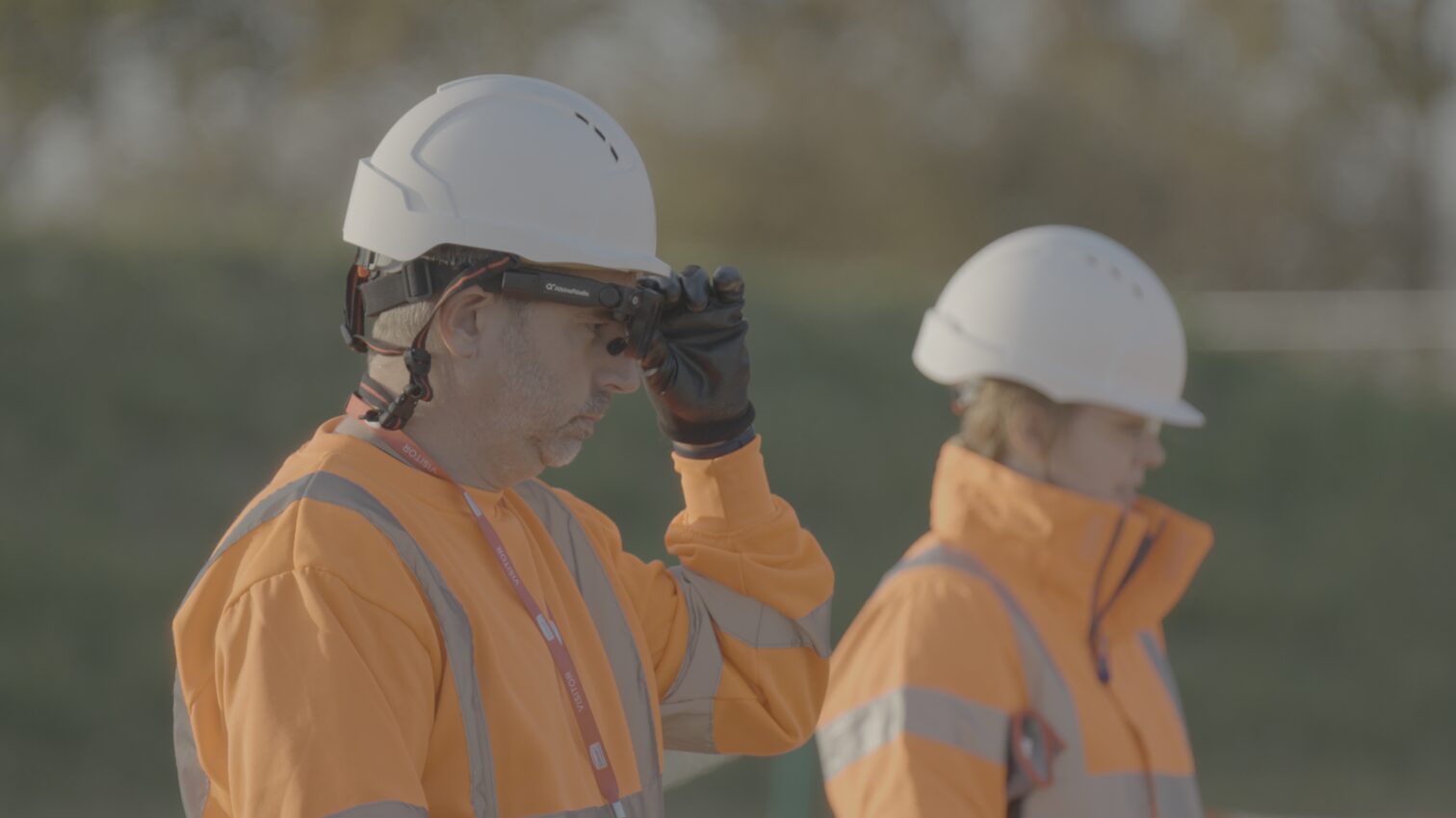
Leave a Reply